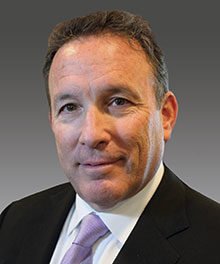Candy Crush

Necco Wafers are an American icon, manufactured since 1847. It’s hard to believe, but Union soldiers consumed them during the Civil War. Admiral Richard Byrd brought 2.5 tons of them to the South Pole during his expedition in the 1930s.
Now their run may be coming to an end. Their manufacturer, New England Confectionery Co., based in Revere, Mass., is preparing to shut down in May if it can’t find a buyer.
That’s prompted a run on Necco candy – including not just the wafers you might recall from your childhood but Mary Janes, Clark Bars, Squirrel Nut Zippers, and Sweethearts. One candy wholesaler has been fielding hundreds of calls from frantic buyers, with some begging to purchase his whole inventory of Necco Wafers, according to The Wall Street Journal.
Necco’s story is a powerful reminder of how consumer trends change with the times. Many people want to eat better today – and see examples of healthier fare everywhere, from the Food Network to Instagram and even some of the food trucks parked outside of their offices. Food makers have to adapt.
Some are seeing opportunity in the changes and going into overdrive to reinvent themselves. Campbell’s, for instance, just announced it was opening an accelerator unit to increase growth in Campbell Fresh, its fastest growing business unit. But take a walk around your local supermarket and you’ll find that many brands haven’t updated their offerings for years. That can leave them very vulnerable and lead to stagnant or declining growth and profitability. (Coincidentally, Marcum has a new national Food & Beverage Services leader, who just joined us last month – Louis J. Biscotti. Welcome to the Firm, Lou!).
This challenge isn’t confined to the food industry. The recent bankruptcy filing by Toys “R” Us – which was laden with debt and facing intensifying competition from Amazon and Walmart – is a good example. Today’s business environment changed so quickly Toys “R” Us couldn’t or didn’t keep up.
Paying close attention to your customers’ behavior is essential to building a business that not only survives but thrives today. In a world where technology, including social media, is bringing change to so many industries, companies that collect the right market data and get in front of trends in the marketplace are going to win. There’s no way around that. Middle-market companies that want to compete need to put the right teams in place and invest in technology to make their processes more efficient. They also need to pay close attention to what their competitors are doing – and not just big corporate rivals. Today’s startup is tomorrow’s middle-market leader.
Even if what you’re doing is working now, you can’t assume it always will. The companies that truly have staying power hold onto their entrepreneurial spirit. They invest in innovation. They are willing to experiment, even if some of their experiments don’t work out as planned. This is what we advise our clients to do, and it’s advice we follow ourselves. For example, if you’re a regular reader of this column, you know we’ve rolled out some new technology services quite recently to help our clients stay ahead of the curve. That helps them, and it helps us at the same time. A win-win all around.
We don’t know how the Necco story will turn out. Perhaps a buyer will swoop in and save the company. Private equity firms love to rescue troubled iconic brands, as was the case with Hostess a few years back. Consumers’ nostalgia for a brand is a valuable asset. Of course, as Necco’s story shows, being an icon will only get you so far. Even if New England Confectionery Co. finds a buyer, as many candy lovers hope it will, its leadership team will have to look ahead and figure out where it fits into a brand new landscape. Otherwise, Necco fans may have to satisfy their sweet tooth with Hershey bars.
On another note, Tuesday is April 17 and this year’s tax filing deadline. For those going on extension (and there are many of us), April 17 is still the day tax liabilities for 2017 need to be paid in full. The extension is just a filing extension, not a payment extension.
In another article, The Wall Street Journal highlighted how the Federal government is not able to accept tax payment checks for more than $100,000,000. Not sure why, but how is it possible that the treasury of the greatest economy ever known to man can’t process a check for $100,000,000 or more? Here at Marcum, we bank with TD Bank. I’m sure if we were lucky enough for someone to send us a check for $100,000,000 (or more), TD Bank would find some way to accommodate that deposit. Perhaps the U.S. Treasury needs to find a new bank.
